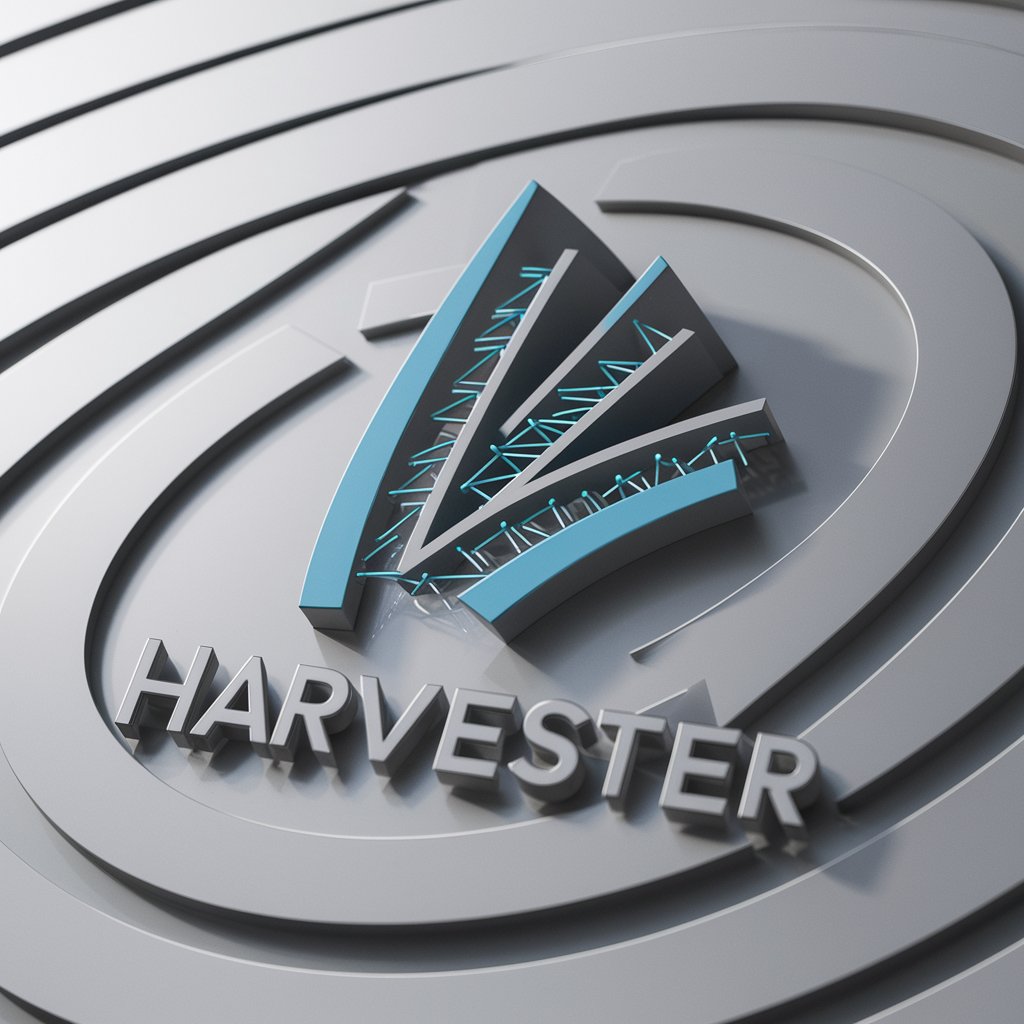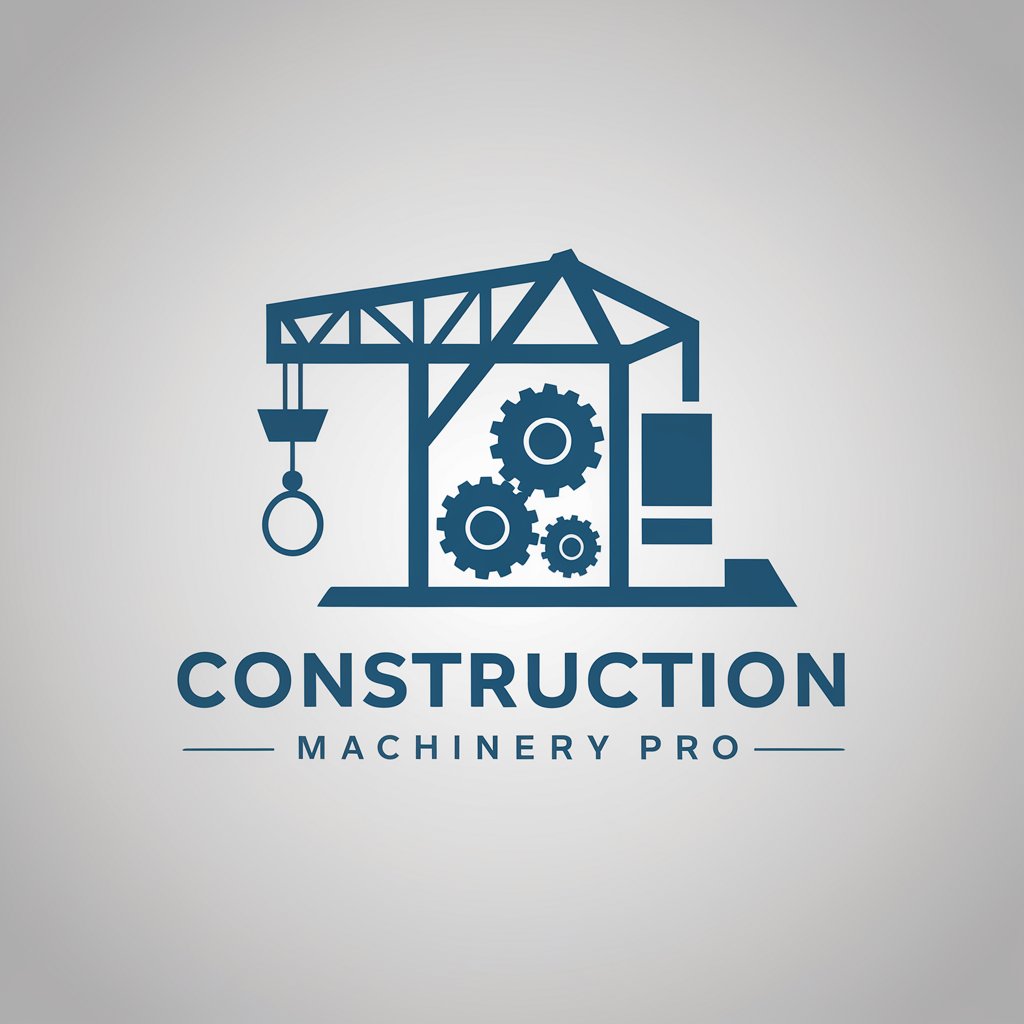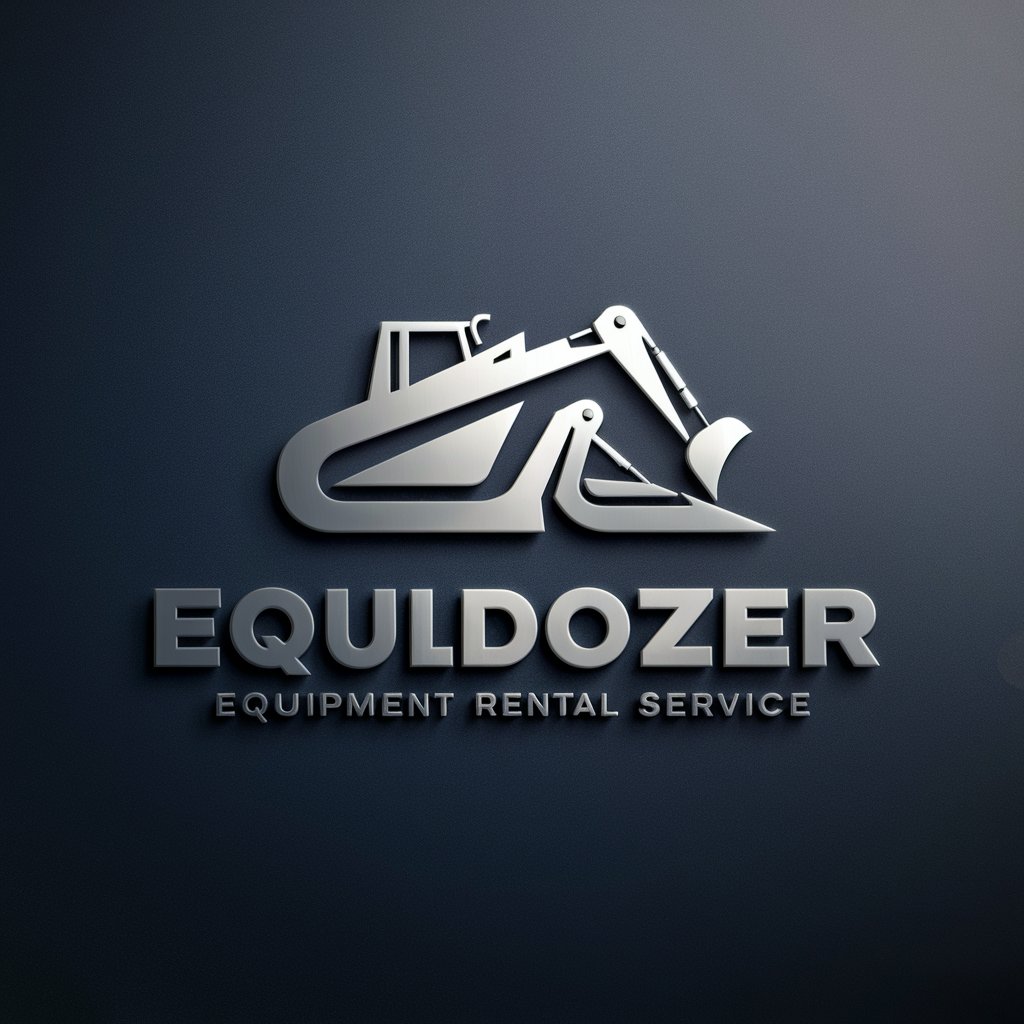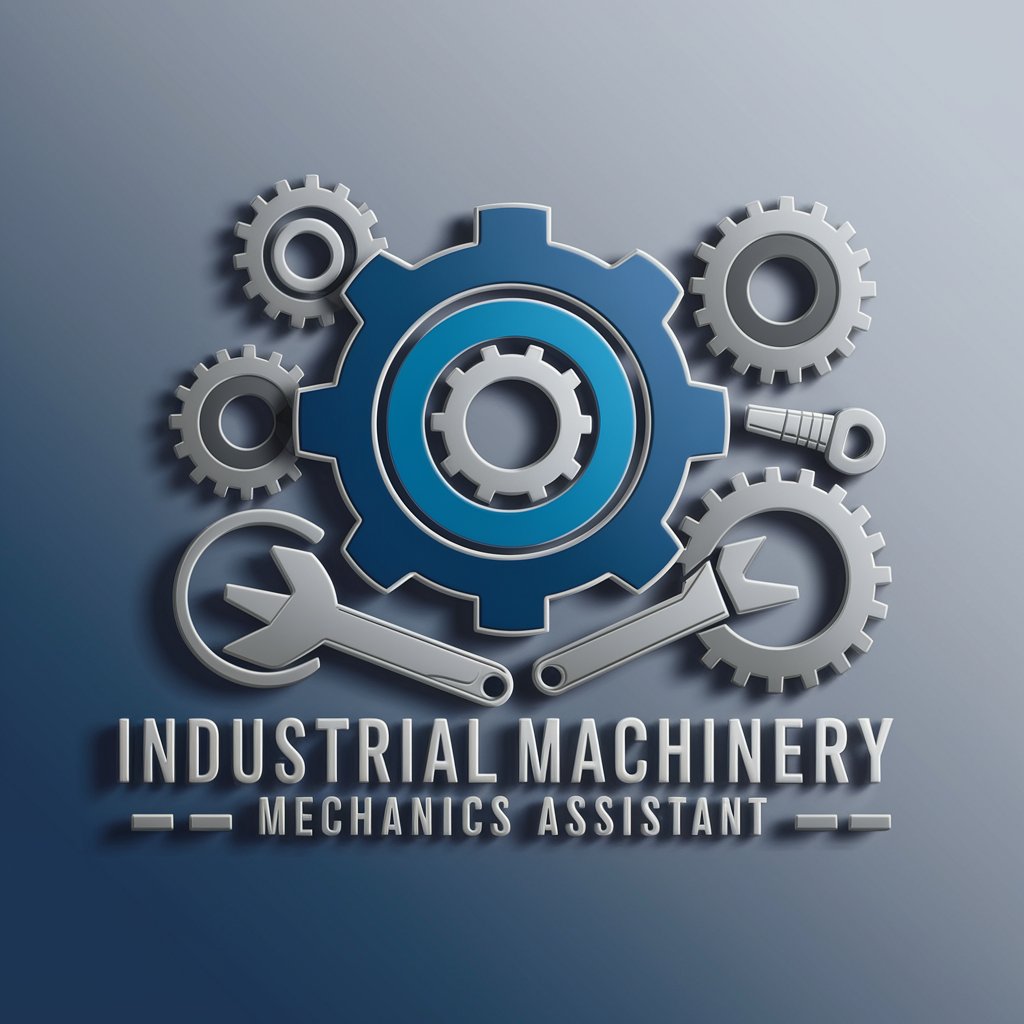
Heavy Machinery - Heavy Machinery Guidance
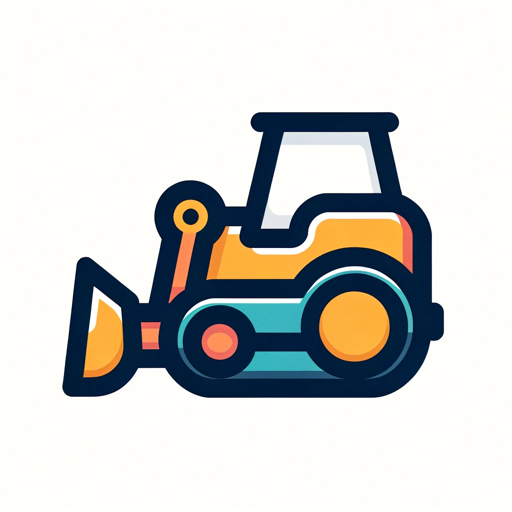
Welcome! How can I assist with your heavy machinery queries?
Expert advice at your fingertips
How do I maintain a bulldozer?
What are common issues with excavators?
Tips for troubleshooting a forklift's engine problem
Guide to replacing hydraulic hoses in heavy equipment
Get Embed Code
Understanding Heavy Machinery: Functions and Design Purpose
Heavy Machinery, often referred to as heavy equipment, encompasses a wide range of machines designed for industrial, construction, and agricultural tasks. These machines are characterized by their ability to perform tasks that require immense power, extensive labor, or both, which are beyond human capabilities. Examples include bulldozers for moving soil, excavators for digging and demolition, cranes for lifting heavy loads, and tractors for agricultural tasks. The design purpose of heavy machinery is to enhance productivity, ensure safety, and improve efficiency in various projects. For instance, in construction, an excavator's hydraulic arm can safely and quickly dig foundations, while a crane can erect steel beams for buildings, illustrating how these machines are integral to modern infrastructure development. Powered by ChatGPT-4o。

Key Functions of Heavy Machinery
Excavation and Demolition
Example
Excavators, Bulldozers
Scenario
Used in construction and mining to remove earth, dig foundations, and demolish structures.
Material Handling
Example
Cranes, Forklifts
Scenario
Applied in construction sites and warehouses to lift, move, and place heavy materials and goods.
Earth Moving
Example
Graders, Scrapers
Scenario
Essential for road construction and land leveling, ensuring surfaces are prepared for building or paving.
Agricultural Tasks
Example
Tractors, Combine Harvesters
Scenario
Used in farming to till soil, plant seeds, and harvest crops, significantly increasing efficiency and productivity.
Who Benefits from Heavy Machinery Services
Construction Professionals
This group includes project managers, engineers, and construction workers who rely on heavy machinery for building infrastructure, roads, and buildings. They benefit from the machinery's ability to perform tasks quickly, safely, and efficiently, which can significantly reduce project timelines and costs.
Agricultural Operators
Farm owners and agricultural workers use heavy machinery like tractors and harvesters to improve crop production and manage farmlands more effectively. These machines enable them to cover large areas quickly, ensuring timely planting and harvesting.
Mining Industry Professionals
Individuals working in mining operations use heavy machinery for excavation, material transport, and processing. This equipment is crucial for extracting resources efficiently and safely, minimizing the human labor required in hazardous environments.

How to Use Heavy Machinery
Start Your Journey
For an initial experience without commitments, visit yeschat.ai to explore a free trial, no login or ChatGPT Plus subscription required.
Identify Your Needs
Determine the specific heavy machinery issue or question you need assistance with, ranging from maintenance advice to repair steps.
Gather Necessary Information
Collect all relevant details about your heavy machinery, including the model, condition, and specific problem areas, to ensure accurate guidance.
Engage with Heavy Machinery
Utilize the provided guidance to perform maintenance or repairs on your heavy machinery, following safety protocols and manufacturer's instructions.
Evaluate and Adjust
After applying the advice, assess the machinery's performance. If issues persist, consider seeking professional assistance or revisiting the guidance for additional insights.
Try other advanced and practical GPTs
Herbs
Unleash Nature's Power with AI

Radiation
Empowering with AI-driven radiation knowledge.

RECORD
AI-powered post-accident guidance.

F1 Smooth Operator
Your AI-powered F1 pitwall strategist.
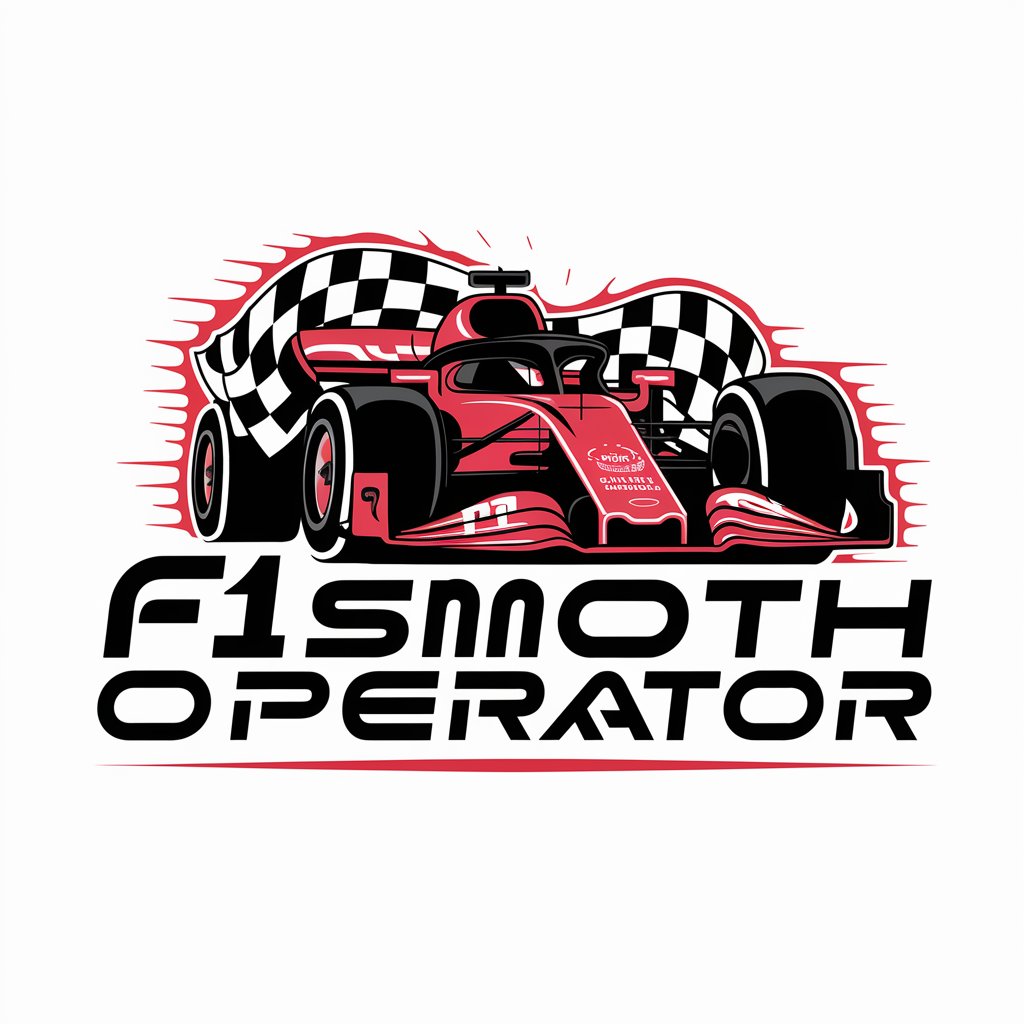
NoshInNoTime
Tailoring your taste, nourishing your needs.

BedGPT
Empowering Your Hosting Experience with AI

APA Assistant
Streamlining APA formatting with AI.

Science Explorer
Empowering your science journey with AI.

HydroTech Pro
Empowering engineering with AI-driven insights

shortsCopilot
Elevate Your Content with AI

CreatorCopilot
Elevate Your Content with AI

HealthDetective
AI-Powered Health Insights at Your Fingertips

Heavy Machinery Q&A
What kind of heavy machinery can you provide advice on?
I offer guidance on a wide range of heavy machinery, including construction equipment like excavators and bulldozers, agricultural machinery like tractors, and industrial equipment like forklifts and cranes.
How can I safely perform repairs on heavy machinery?
Safety begins with turning off the machine and removing the key. Always follow the manufacturer's guidelines, use the proper tools, wear appropriate safety gear, and, if unsure, consult a professional.
What are the most common maintenance tasks for heavy machinery?
Regular maintenance tasks include checking fluid levels (oil, hydraulic, coolant), inspecting for leaks or damage, cleaning filters, lubricating moving parts, and ensuring all components are tightly secured.
Can I troubleshoot heavy machinery issues on my own?
Yes, basic troubleshooting can often be performed independently. Start by consulting the machinery's manual for common issues and solutions, paying close attention to any warning lights or unusual noises.
What should I do if my heavy machinery breaks down?
First, safely secure the machine and assess the situation. Check for obvious signs of malfunction. If the issue is beyond your skill set, it's best to contact a professional for repair.
